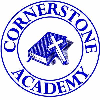One subject that comes up frequently is closing costs and asking the seller to pay them. Over the years, we have often asked for the seller to pay closing costs when writing offers for our buyers. I thought I would post a little information about the subject to help clear up a few things.
What are closing costs -
Closing costs are the fees associated with purchasing a home, outside of down payment. Some examples are inspections, points, title fees, lender fees, etc. These fees can add up to a hefty amount, depending on your credit score and the value of the home you are purchasing.
If you have little cash over and above your down payment, closing costs can be insurmountable. By asking the seller to pay some or all of these costs, you can reduce your out of pocket expense at the closing table.
Pros -
The benefit to seller paid closing costs is, obviously, the cash you save during closing. Being able to avoid the closing costs at closing can provide extra cash to use after closing for repairs, moving expenses or furniture.
Cons -
There are a few negatives to having the closing costs paid by the seller. The most notable is that the seller isn't paying the closing costs. What? Isn't the point of this article "seller paid" closing costs? Yes it is, but the reality is that, in the end, you are going to pay those fees. Plus interest. What is actually happening when you ask the seller to pay the costs is that the fees are rolled into your loan?
Let's say you are making an offer for $100,000 for a home. Closing costs are estimated to be $2,800. When you write the offer, you offer the $100,000 and, in the contract, ask the seller to pay that $2,800. Where do you think the seller is going to get that money? Are they going to run down and cash a check? Absolutely not. They are going to pay those costs out of their proceeds at closing. The full $100k is going to be loaned to you with $2,800 of the sellers profit going to the closing costs. You are financing those costs over the life of your 15, 20 or 30 year note. Sometimes that is the only option, but if you can pay the costs up front, you will save a tremendous amount of money in the long run.
Some items must be paid up front. Often, items such as inspections must be paid prior to the vendor providing services to you. Regardless of whether or not the home sale is completed, those vendors want to be paid. The best way to ensure that is for payment to be made up front. You will then receive credit for that pre-paid money at closing, if your agent wrote the contract correctly and the lender allows those items to be included.
Which brings us to lender limitations. Lenders, especially now, want to make certain that your as a buyer have "skin in the game" when making the purchase. Some lenders, depending on the program that you use for your loan, will dictate the amount or types of items that can be covered by seller paid closing costs. Knowing this up front is part of your agents job and why they need to work closely with your lender.
Seller ramifications -
One possible issue from asking the seller to pay closing costs is that it may irritate seller. Remember the discussion earlier about where the money comes from? Although you are basically borrowing the money that pays the closing costs, you are asking the seller to discount their sale price to offset those costs. That means that the seller is not getting $2,800 of their money.
Whether or not the seller will pay the amount you need, or anything at all, depends on what their final proceeds turn out to be. They have costs to sell their home and they are typically paying all of the commission for both the buyer's and seller's agents. The buyer asking for another large amount of money to be taken out of their proceeds doesn't usually sit well with a seller. There usually isn't an option to raise the sale price to accommodate the closing costs and you are probably trying to get a deal anyway, right?
Final thoughts -
In the right circumstance, seller paid closing costs can be an effective tool to put you in a home with the least amount out of pocket. Just understand that is isn't like found money. It comes from somewhere and has consequences. It's up to you, your agent, the seller and their agent to structure a transaction that suits both parties so it's a win-win all around.
Warmest regards,
Dan
 Cornerstone Academy
Cornerstone Academy 








